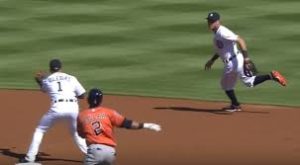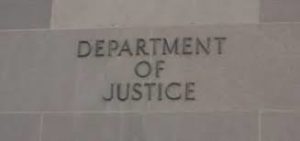Double Play, Double Declinations: DOJ Pushes FCPA Pilot Program Benefits
 DOJ’s FCPA Pilot Program was panned when it was announced in April 2016. Critics contended that the incentive for voluntary disclosure of FCPA violations to DOJ was inadequate.
DOJ’s FCPA Pilot Program was panned when it was announced in April 2016. Critics contended that the incentive for voluntary disclosure of FCPA violations to DOJ was inadequate.
Under the FCPA Pilot Program, a company can earn up to a 50 percent reduction from the bottom of the applicable range for calculation of a criminal fine. DOJ also noted the possibility of a declination with no fine, so long as the company disgorged any illegal proceeds earned from the bribery scheme.
The politics surrounding the FCPA Pilot Program has been reflected in the implementation of the new program. Some DOJ officials wanted to offer a larger carrot — a declination in exchange for voluntary disclosure, cooperation and remediation. That position was rejected and a more conservative carrot was offered — a 50 percent reduction from the bottom of the sentencing range in exchange for voluntary disclosure, cooperation and remediation.
Under the influence of the Fraud Section appointees, the DOJ Unit is currently, in practice, seeking to push the carrot to the declination side when they have an opportunity to do so. DOJ is attempting, in practice, to incentivize companies to disclose FCPA violations and cooperate with a DOJ investigation. So far, three companies earned declinations under the Pilot Program: Nortek, Akamai Technologies, and Johnson Controls.
As a further reflection of DOJ’s attempt to push he carrot side of the equation, DOJ last week issued letters to two Texas companies declining to prosecute them for violating the FCPA and requiring them to disgorge any profits earned from the bribery.
HMT (Here)
HMT LLC manufactures above-ground liquid storage tanks for oil and gas companies. According to DOJ’s letter, HMT paid a half million dollars in bribes in Venezuela and China and earned $2.7 million in profits from bribes. HMT agreed to disgorge $2.7 million.
HMT retained an agent in Venezuela who bribed officials at PDVSA, the state-owned oil and gas company. The agent charged inflated prices for HMT’s products and used a portion of the mark up to fund bribes to PDVSA officials. HMT officials approved the inflated invoices, knowing that the agent was paying bribes.
In China, a local distributor of HMT’s products bribed China government officials to buy HMT products.
NCH (Here)
NCH Corporation makes cleaning products. A subsidiary in China gave China officials $44,000 in bribes in cash, meals, gifts and entertainment. NCH generated profits of $335,000 and was required to disgorge the amount.
NCH employees bribed employees of Chinese state-owned customers to purchase NCH products. The bribes were disguised as “customer maintenance fees,” “customer cooperation fees,” and “cash to customer.”
 The DOJ letter cited one example where NCH paid for several Chinese officials to travel to the US and Canada for a 10-day sightseeing trip which cost about $12,000. Only a half day of the trip involved a business-related purpose.
The DOJ letter cited one example where NCH paid for several Chinese officials to travel to the US and Canada for a 10-day sightseeing trip which cost about $12,000. Only a half day of the trip involved a business-related purpose.
The declination letters confirmed that each of the companies satisfied the requirements of the FCPA Pilot Program through timely, voluntary self-disclosure of the violations; global investigation of the violations; full cooperation and disclosure of all known relevant facts about the individuals involved or responsible for the misconduct; agreement to continue to cooperate in any ongoing investigations; enhancement of internal controls and compliance program; disgorgement of all bribery proceeds; and full remediation including terminating employees involved in the FCPA violations, sanctioning other employees, and severing relationships with any third parties involved in the bribery. The companies also agreed not to take tax deductions for any part of the disgorgement.
















2 Responses
[…] Read Full Article: Double Play, Double Declinations: DOJ Pushes FCPA Pilot Program Benefits – Corruption, Crime &… […]
[…] Read Full Article: Double Play, Double Declinations: DOJ Pushes FCPA Pilot Program Benefits – Corruption, Crime &… […]